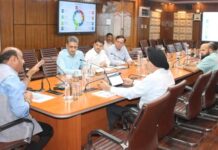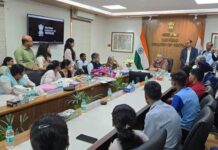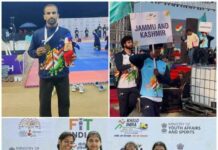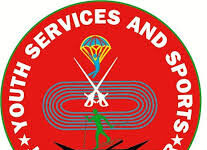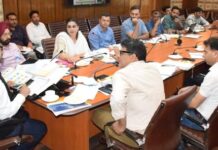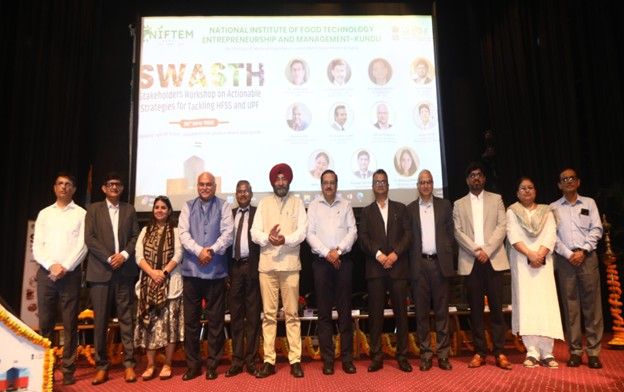MAY 27: In a significant step towards shaping a healthier food landscape in India, the Ministry of Food Processing Industries (MoFPI), in partnership with NIFTEM-Kundli, organized the SWASTH workshop on May 27, 2025. The full-day workshop, titled Stakeholders Workshop on Actionable Strategies for Tackling HFSS and UPF, centered on scientific insights, consumer behavior, and the urgent need for informed food choices in the modern era.
Delivering the keynote address, Dr. Subrata Gupta, Secretary, MoFPI, emphasized the need for a technology-driven approach to nutrition monitoring. Drawing attention to the public’s growing interest in fitness tracking, he pointed out the lack of tools to measure daily calorie intake and urged NIFTEM-K to innovate wearable technology capable of tracking energy consumption. Highlighting global trends, Dr. Gupta noted that two-thirds of worldwide deaths stem from non-communicable diseases (NCDs), calling for urgent collective action against food adulteration, wastage, and unhealthy diets. He also encouraged regular hosting of such events for continuous public engagement.
Dr. Harinder Singh Oberoi, Director, NIFTEM-K, announced plans to introduce food processing education in NCERT school curricula. Echoing ancient wisdom, he reiterated the belief that “food is medicine” and emphasized the need to integrate traditional knowledge with modern scientific practices, especially in areas like sugar content regulation.
The workshop also featured insights from Dr. Ravinarayan Acharya of CCRAS, who underscored Ayurveda’s preventive approach to health through appropriate diet. Dr. Satyen Panda of FSSAI addressed the dangers of HFSS and ultra-processed foods (UPFs), stressing the need for scientific regulation.
The technical sessions included expert discussions on ICMR guidelines, nutrient profiling, and India’s need for its own dietary models. Dr. Komal Chauhan and Dr. Heena Yadav presented key findings and FAQs on HFSS and UPFs, while Dr. Seema Puri and Dr. Swati Bhardwaj advocated evidence-based strategies like portion control and meta-research.
The final session featured representatives from industry giants such as ITC, Nestlé, and Marico, as well as associations like FICCI and IFBA. The consensus called for regulation grounded in science, not emotion, and flagged classification challenges where healthy foods like oat milk or tofu may be unfairly labeled.
The event concluded with the reminder: Eat consciously, avoid incompatible food combinations, and let informed choices guide public health.











